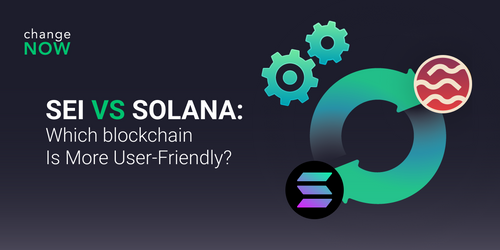Can Crypto Wallets Truly be Hacked?
Crypto has gained significant popularity in recent years, attracting new investors and developers to the blockchain ecosystem. Along with this surge in interest, however, comes the risk of security breaches and hacks.
Crypto wallets, in particular, can be vulnerable to various hacking techniques. In this comprehensive guide, we will delve into the different ways crypto wallets can be hacked and explore strategies to prevent such attacks. Whether you're a seasoned crypto user or just starting out, understanding the potential risks and implementing proper security measures is crucial for safeguarding your digital assets.

Understanding Crypto Wallets
Before we dive into the various hacking techniques, let's first clarify what a crypto wallet is. A crypto wallet is a software application that enables users to securely store, send, and receive digital currencies. It interacts with the blockchain network, allowing users to manage their private keys, which are essential for authorizing transactions. It's important to note that a wallet is not the same as an address. Wallets manage multiple addresses, each associated with a unique public key, while addresses serve as the destination for sending and receiving funds.
Hacking Techniques Targeting Crypto Wallets
1. Phishing Attacks
One of the most common hacking techniques is phishing, where attackers trick users into revealing their private keys or sensitive information. Phishing attacks typically involve fake websites or emails that mimic legitimate crypto platforms, luring users to enter their credentials. These malicious actors exploit human vulnerabilities and use social engineering tactics to deceive unsuspecting individuals. By falling victim to a phishing attack, users unknowingly provide hackers with access to their wallets.
To protect yourself against phishing attacks, it's crucial to verify the authenticity of websites and emails before sharing any personal or financial information. Always double-check the website's URL and ensure it uses secure encryption (HTTPS). Be cautious of unsolicited emails and avoid clicking on suspicious links. Additionally, enabling two-factor authentication (2FA) adds an extra layer of security and makes it more difficult for hackers to gain unauthorized access to your wallet.
2. Malware Attacks
Malware attacks target users' devices, infecting them with malicious software designed to steal sensitive information, including private keys. These attacks can occur through various means, such as downloading infected files, visiting compromised websites, or clicking on malicious advertisements. Once the malware gains access to a user's device, it can monitor keystrokes, capture screenshots, and even modify wallet addresses during transactions, redirecting funds to the attacker's address.
To mitigate the risk of malware attacks, it's essential to keep your devices and software up to date with the latest security patches. Install reputable antivirus or anti-malware software to detect and remove any potential threats. Be cautious when downloading files or clicking on links, especially from untrusted sources. Regularly scan your devices for malware and avoid visiting suspicious websites.
3. Keyloggers
Keyloggers are a type of malware that records every keystroke made on an infected device, including passwords, private keys, and other sensitive information. Attackers use keyloggers to gather data covertly and gain unauthorized access to crypto wallets. These malware programs can be installed through phishing emails, malicious downloads, or compromised websites.
To protect against keyloggers, use virtual keyboards or password managers that encrypt keystrokes and protect your sensitive information. Be vigilant about the websites you visit and avoid downloading files from untrusted sources. Regularly scan your devices for malware and consider using dedicated security tools to detect and remove keyloggers.
4. Smartphone Hacks
As mobile devices become increasingly integrated into our daily lives, they have also become targets for hackers. Smartphone hacks can occur through various methods, including phishing attacks, malware downloads, or exploiting vulnerabilities in the operating system. Once a hacker gains control of a user's smartphone, they can access crypto wallet apps and steal private keys or manipulate transactions.
To protect your smartphone from hacking attempts, always install the latest software updates and security patches. Avoid downloading apps or files from untrusted sources and be cautious of suspicious links or emails. Consider using reputable security software specifically designed for mobile devices.
5. Wallet Vulnerability Exploitation
Despite the inherent security measures in crypto wallets, vulnerabilities can still exist. Hackers can exploit these vulnerabilities to gain unauthorized access to wallets and steal funds. These vulnerabilities can arise from coding errors, software bugs, or design flaws in the wallet's infrastructure. It's crucial for wallet developers to regularly update and patch any identified vulnerabilities to maintain the highest level of security.
As a user, it's essential to choose wallets from reputable and trusted developers who prioritize security. Research the wallet's track record, read reviews, and ensure it has a strong reputation within the crypto community. Opt for wallets that undergo regular security audits and have a dedicated team actively addressing and patching vulnerabilities.
Preventing Wallet Hacks
Now that we've explored the various hacking techniques targeting crypto wallets, let's discuss strategies to prevent wallet hacks and safeguard your digital assets.
- Choose a Secure Wallet: Selecting the right wallet is key to protecting your crypto assets. Consider using a non-custodial wallet that gives you full control of your private keys. Non-custodial wallets, such as the NOW Wallet, prioritize security and allow you to store your private keys securely on your own device. Additionally, hardware wallets, like the popular Ledger and Trezor devices, offer an extra layer of security by keeping private keys offline.
- Practice Good Security Hygiene: Maintaining good security hygiene is essential to prevent wallet hacks. Create strong, unique passwords for your wallets and regularly update them. Avoid reusing passwords across different platforms, as this increases the risk of compromise. Consider using a reputable password manager to securely store and generate complex passwords.
- Stay Vigilant Against Phishing Attacks: Phishing attacks are prevalent in the crypto space, so it's crucial to stay vigilant. Be cautious of unsolicited emails, messages, or links, especially those requesting sensitive information. Always verify the authenticity of websites and ensure they use secure encryption. If in doubt, contact the official support channels of the wallet or platform to confirm the legitimacy of any requests.
- Keep Your Devices Secure: Securing your devices is fundamental to protecting your crypto wallet. Regularly update your operating system and software with the latest security patches. Install reputable antivirus or anti-malware software and scan your devices regularly for potential threats. Only download apps or files from trusted sources, and be cautious of suspicious links or advertisements.
- Backup Your Wallet: Always create a backup of your crypto wallet and store it securely in multiple locations. This ensures that even if your device is lost, stolen, or compromised, you can still recover your funds using the backup. Use encrypted storage devices or cloud services to store your backups securely.
- Stay Informed and Educated: The crypto landscape is continuously evolving, and new hacking techniques may emerge. Stay informed about the latest security practices and developments in the crypto space. Follow reputable sources, participate in community forums, and engage with experienced crypto users to enhance your knowledge and understanding of wallet security.
Conclusion
While crypto wallets offer convenience and security for managing digital assets, they are not immune to hacking attempts. Understanding the various hacking techniques and implementing robust security measures is crucial to safeguarding your crypto wallet and funds. By choosing reputable wallets, enabling two-factor authentication, practicing good security hygiene, and staying vigilant against phishing attacks, you can significantly reduce the risk of wallet hacks. Remember to keep your devices secure, backup your wallet, and stay informed about the latest security practices. By taking these precautions, you can enjoy the benefits of cryptocurrencies while minimizing the potential risks.
Protect your crypto assets with the NOW Wallet - a secure and user-friendly solution to keep your digital funds safe. Download NOW Wallet today and enjoy worry-free crypto transactions.




